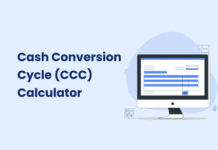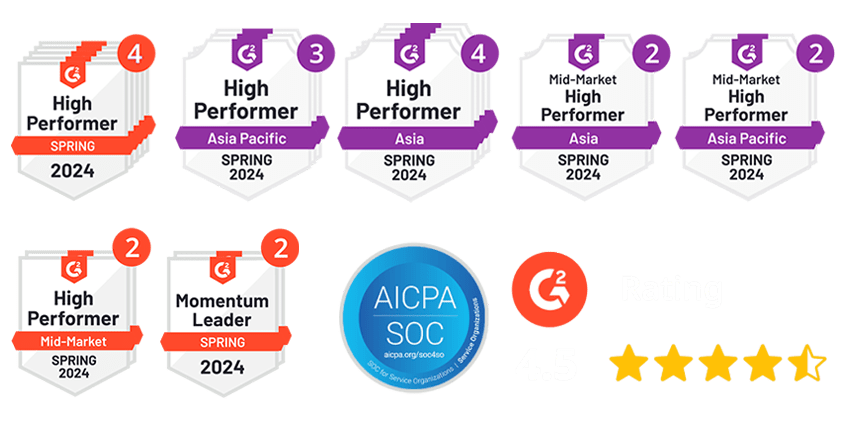Disputes over invoices pose significant financial challenges for growing businesses. Whether customers dispute specific details or the entire invoice, these incidents can strain cash flow and demand substantial time and effort for resolution. Despite having a robust billing process, invoice disputes will inevitably arise. That’s why establishing an effective invoice dispute management system is crucial. It helps the accounts receivable team navigate these challenges efficiently, ensuring smoother financial operations and timely resolution of disputes.
Finding the right equilibrium between quickly resolving disputes and keeping customers satisfied is crucial in today’s business environment. Let’s explore how to master invoice dispute management to enhance the efficiency of accounts receivable teams.
What is Invoice Dispute Management?
Invoice dispute management refers to the systematic process of handling and resolving conflicts or disagreements that arise between a business and its customers regarding issued invoices. It involves managing and addressing disputes related to billing, pricing, services, or any other issues that may lead to disagreements about the accuracy of an invoice.
The primary goals of invoice dispute management are to efficiently resolve conflicts, maintain positive customer relationships, and ensure the timely and accurate payment of invoices. It includes steps such as identifying and acknowledging disputes, investigating the issues raised by customers, communicating effectively to clarify any misunderstandings, and implementing solutions or adjustments as needed.
What are the Different Types of Invoice Disputes?
Common types of invoice disputes include:
- Service or product quality. When customers are unsatisfied with the quality of the items or services given, disputes may arise.
- Errors in administration. Disputes might arise as a result of inaccuracies in billing facts, computations, or other administrative oversights.
- Invoices that are duplicates. Customers who get repeated invoices for the same transaction may protest the charges.
- Disagreements in event dates. If there are arguments or differences regarding the schedule or date of a specific event or service, a dispute may occur.
- Goods that are missing, damaged, or incomplete. Customers may challenge the associated invoice if the supplied products are missing, damaged, or incomplete.
- Pricing concerns. Pricing discrepancies, such as improper rates or charges, can lead to disagreements between the company and the client.
What is the Importance of Dispute Management for Accounts Receivable Teams?
Disputes can emerge for diverse reasons, including miscommunication, errors, or a lack of clarity regarding payment terms. When faced with multiple disputes, customers often delay payments. Inefficient resolution processes for invoice disputes can lead to uncollectible debts, posing a direct threat to a company’s cash flow and causing financial losses.
Here are a few reasons why accounts receivable teams should have invoice dispute management in place:
Cash Flow Stability: Effective dispute resolution ensures that payments are paid on time, avoiding delays that interrupt cash flow, and assists accounts receivable teams in maintaining a consistent income stream.
Customer Satisfaction: It is critical to resolve issues professionally and swiftly to retain strong customer relationships. Effective dispute resolution shows a dedication to customer service and may boost customer satisfaction, loyalty, and trust.
Time and Resource Efficiency: Unresolved conflicts can take up a lot of time and resources. By implementing an effective dispute management process, accounts receivable teams may resolve issues more quickly, freeing up time and resources for other important activities.
Reduced Aging Receivables: Timely resolution of disputes helps to reduce aging receivables and, in turn, reduces the risk of bad debt and write-offs.
Compliance and Legal Considerations: In some businesses, precise billing and invoicing requirements must be followed. Effective dispute resolution assists firms in adhering to legal standards and avoiding any penalties or legal concerns linked with billing differences.
Improved Communication: Clear communication between the business and its consumers during the dispute resolution process promotes transparency and understanding. Open communication can help to avoid misunderstandings and foster better, more productive relationships.
Steps of Invoice Dispute Management
Invoice dispute management involves a structured approach to address issues related to invoice, billing, or payment discrepancies. Here are the key steps tailored:
Step 1: Receiving the Dispute Inquiry
The accounts receivable team receives inquiries related to billing errors, damaged goods, shipment delays, or other issues from customers or the accounts payable department.
Step 2: Tracking and Prioritization Inquiries
The accounts receivable team logs inquiries into a tracking system and prioritizes them based on importance, dispute reasons, and urgency.
Step 3: Collect Necessary Data
The accounts receivable team then gathers all invoice-related information and identifies the appropriate stakeholders. This includes documents like Proof of Delivery, Bill of Lading, order and sales invoices, tax receipts, etc. In this step, accounts receivable teams also request any missing documents or information from the customer to expedite the process.
Step 4: Resolution of Disputes
The accounts receivable team analyzes the dispute, and if the dispute is valid, seeks approval from superiors. Then they determine the appropriate course of action, such as collecting, refunding, or writing off the disputed item.
Step 5: Customer Follow-up
For invalid disputes, the accounts receivable team informs the customer about the issue and seeks clarification. For valid disputes, usually a credit note is issued.
Step 6: Record-Keeping
The accounts receivable team updates the status in the ERP and accounting system to maintain accurate records of the account.
How Can Accounts Receivable Teams Effectively Manage Invoice Disputes?
Effectively handling accounts receivable disputes involves using a mix of skills, strategies, and processes. Here are some key ways to manage these disputes in a customer-centric manner:
Timely Communication
Swift and proactive communication is crucial in handling invoice disputes. Accounts receivable teams should promptly address customer concerns, actively listen to their viewpoints, and provide clear explanations. Keeping customers informed throughout the resolution process helps maintain open communication channels.
Empathy and Understanding
Approach invoice disputes with empathy and understanding. Put yourself in the customer’s shoes to comprehend their frustrations, concerns, and motivations. Demonstrating empathy helps build rapport and trust, creating a positive atmosphere for resolving disputes.
Detailed Documentation
Accounts receivable teams should document all relevant information related to disputes. Maintain accurate records of communications, contracts, invoices, and supporting documents. Detailed documentation serves as a reference point during negotiations, ensuring transparency and accountability.
Collaborative Problem-Solving
Instill a collaborative problem-solving approach instead of an adversarial one. Work with customers to explore potential solutions, considering the interests and constraints of both parties. Seek outcomes that benefit both sides, preserving the business relationship through a cooperative environment.
Closing Thoughts
The dispute resolution process, with its numerous steps, can be time-consuming and prone to errors, impacting the efficiency of the accounts receivable team. The solution is to implement automation solutions to help resolve accounts receivable disputes faster.
Peakflo’s Customer Portal allows the accounts receivable team to streamline the dispute resolution process. Your customers can easily raise disputes against a specific invoice with customizable dispute reasons through the solution. Based on the dispute reason, the right stakeholders will get notified instantly via email. Moreover, the accounts receivable team and the customers can have full visibility over all the essential documents, uploaded files, and communications through the timeline to keep a clear audit trail.









![Why AI Sales Calls Are Making Good Sales Reps Even Better [2025 Guide] ai sales calls](https://cdn-kmjmp.nitrocdn.com/YvtqmrsiHUxqerlSiZgbfzqqTARWTElr/assets/images/optimized/rev-834053b/blog.peakflo.co/wp-content/uploads/2025/09/65168cf6-3001-4733-8cbc-12d5684cf449-218x150.webp)

































